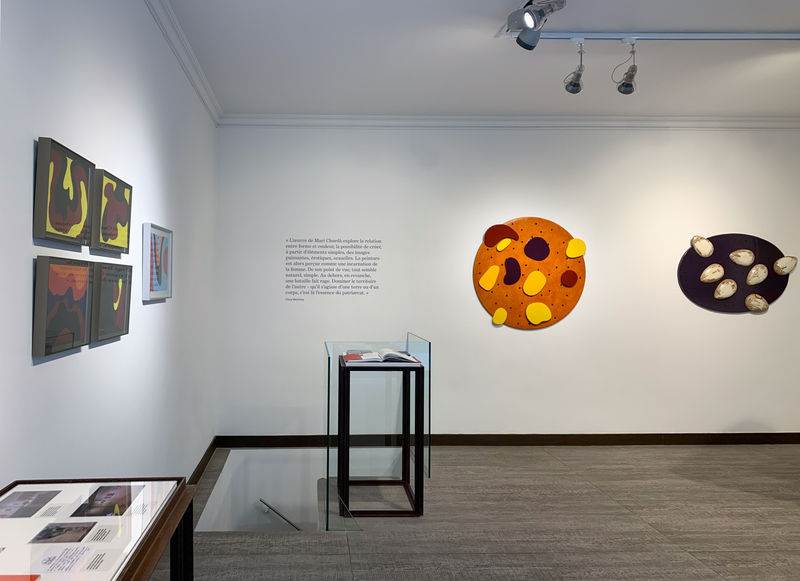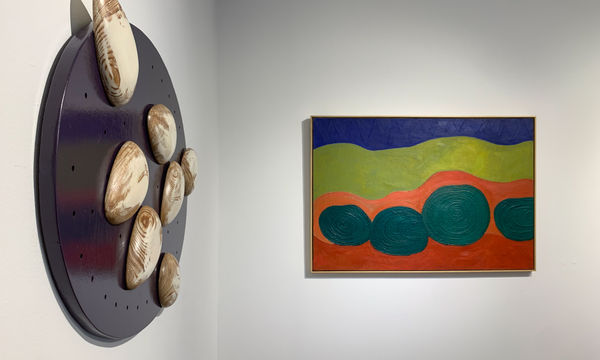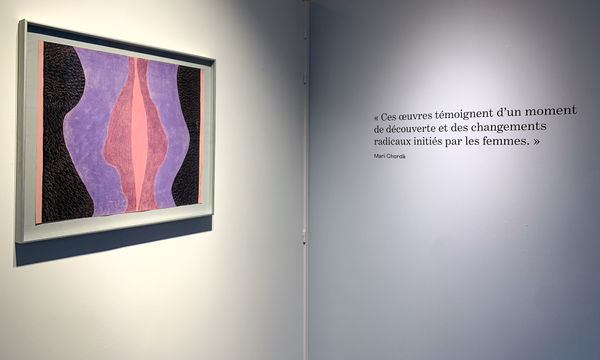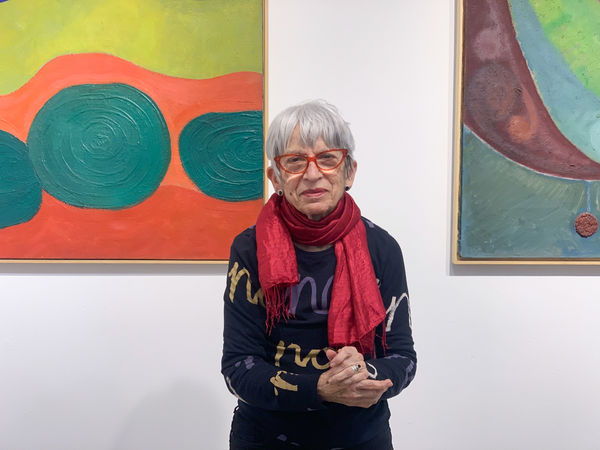Past exhibition
Overview
Following the first iteration in Barcelona, this exhibition pays tribute to the artistic career and work of Mari Chordà (b. Amposta, 1942) with a selection of 11 works created between 1962 and 1969. A painter, poet and publisher, Chordà was a pioneer in the visual expression of the female body, female sexuality and the experience of maternity. The artist developed her most characteristic and personal art influenced by the pop aesthetics she discovered during her formative experience in Paris.
Attracted by its vibrant cultural life, Mari Chordà moved to Paris in 1965. She first settled in a beautiful house in Boulogne-Billancourt and later moved to the pigeonnier of an old house near Porte de Vanves, which she also used as her studio. She attended a course at the Beaux-Arts de Paris and actively visited museums and galleries all around the city. When she discoved she was pregnant with her daughter, Chordà realised that she wanted to give birth in her hometown of Amposta (Catalonia), where she returned in December 1966. During her time in Paris, her palette shifted dramatically as a result of discovering artists linked to the New Realism and Pop art movements, notably Niki de Saint Phalle.
Chordà first painted depictions of female genitalia in 1964, the year before moving to Paris, while still a student and participating in demonstrations against the Franco regime; at this time, the feminist art revolution associated with Judy Chicago and Miriam Schapiro had barely begun to make waves in the United States and it was completely unheard of in Spain. Her inspiration for the series which she titled the “Vaginals”—represented here by Líquids (Liquids) (1966), Paris 4 (1966) and the seminal 1968 painting Vulva—arose from a desire to inhabit her own body, to wrestle it back from the patriarchy by exploring tabooed conceptions of femininity and generating new references. Chordà used what she described as a “non-figurative language”—somewhere between abstraction and close-up photography—which allowed her to capture her vision of her body from a physiological perspective as only she could, from the inside out. The resultant pictures are sensual and suggestive: abstract, ondulating anatomical landscapes. Chordà plays with the relationship between form and colour, shifting our perception and engagement with our subconscious as we try to make sense of them.
Hung side by side, two large-scale landscapes in the more traditional sense, Vola, Vola (Fly, fly) (1964) and Garriga II (Scrubland II) (1965) reveal the importance of the familiar terrain of her native southern Catalonia for her work: in particular, the River Ebro and the Montsià. In Garriga II, for example, we observe how she represents the holm oaks of the Sierra del Montsià as a dense material filled with sgraffito spirals, a motif she repeated. These two works also demonstrate the impact of Chordà’s move to Paris in 1965 on her palette. She began to incorporate ever brighter, bolder colours which, she observed, “forced you to stop and look at them.” Chordà never considered herself a Pop artist, however, and actively sought ways to counter what she saw as the inherent voyeurism of many North American Pop artworks—which deliberately represented women in an idealised fashion—sacrificing the alibi of a commercial aesthetic but maintaining its appealing palette and brilliant finish.
This aesthetic finds its apogee in her playful series “Joguets” (“Toys”), represented here by Colors (Colours) (1969) and Ous de felina (Feline eggs) (1969). These polychrome wood sculpture-paintings are inspired by a game for children with which her daughter Àngela would have played, in which moveable coloured pieces could be slotted into holes in various combinations. In the same way that Fontana’s series “La Fine di Dio” or “The End of God” signified the infinite and the inconceivable to him, for her the “Toys” are a ludic questioning of the status of God within the repressed Catholic society of Franco’s Spain. She raises the status of these toys to high art, placing her role as mother and creator literally at the centre of her practice and, figuratively, into the hands of her child.
Mari Chordà’s subject matter has always tended towards both the political and the personal; for a woman artist working in the 1960-70s, the two were inextricably linked. As Chuz Martínez wrote: “Chordà’s interest in form is simply the expression of her passion for life.”
Installation Views








